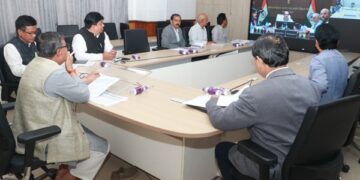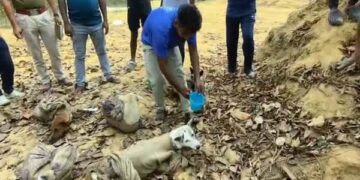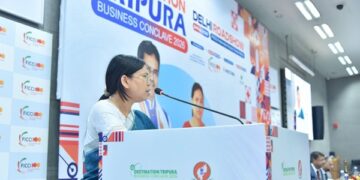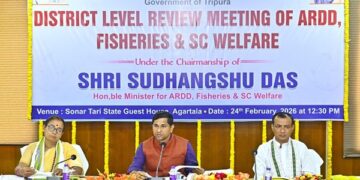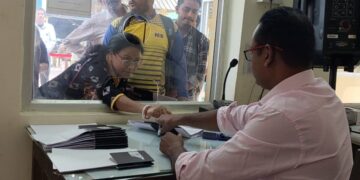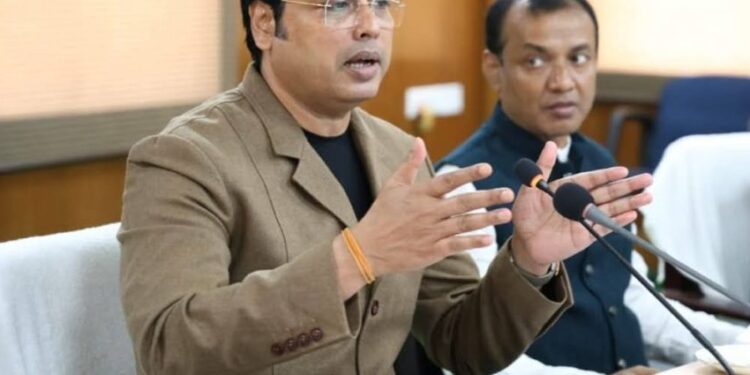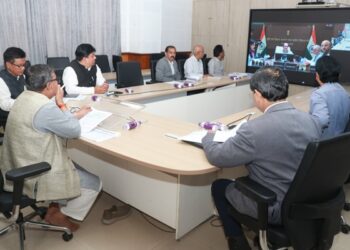Agartala: Feb 18: To address the growing concerns over groundwater depletion and contamination due to high iron content, Tripura is considering sourcing water from Dumbur Lake to supply major urban centers, including state capital Agartala. The proposal aims to ensure a more sustainable and healthier water supply system for residents.
The initiative was highlighted by former Chief Minister and Member of Parliament Biplab Kumar Deb during a meeting of the District Development Coordination and Monitoring Committee (DISHA) for West District at the state guest house on Tuesday.
Deb stressed the importance of ensuring effective implementation of central schemes such as the Pradhan Mantri Matsya Sampada Yojana (PMMSY), Jal Jeevan Mission, and agricultural support programs.
Recalling his tenure as Chief Minister, Deb noted that he had earlier proposed constructing a dam in the Baramura Hills to enhance the water supply from the Howrah River, reducing reliance on groundwater in Agartala.
He emphasized that groundwater in the region contains excessive iron, making it unsuitable for direct consumption compared to river water, which is easier to purify.
“In today’s meeting, a proposal of West District DM Vishal Kumar was discussed regarding the possibility of bringing water from Dumbur Lake through pipelines to Agartala. This would not only benefit the capital city but also other urban centers like Bishalgarh and Udaipur, which fall along the proposed route,” Deb stated.
He added that the proposal is currently in its initial stages and requires a feasibility assessment before being presented to the Chief Minister and Chief Secretary for further deliberation.
This was Deb’s first attendance at the DISHA meeting in his capacity as an MP. The meeting saw participation from Agartala Mayor Dipak Majumder, West Tripura District Magistrate Dr. Vishal Kumar, local MLAs, and other officials, who discussed the execution and impact of over 45 central government schemes aimed at state development.
Deb underscored the need for accountability in the implementation of these schemes.
He stated that while 78% of Tripura’s households are covered under the Jal Jeevan Mission, it is essential to assess whether they are receiving clean drinking water and identify any operational challenges, such as power supply disruptions.
To enhance the effectiveness of government initiatives, Deb suggested forming small sectoral committees focused on key areas like education, healthcare, drinking water, and electricity. These committees would ensure timely execution and measurable outcomes that directly benefit citizens.
He concluded by announcing that in three months, he would convene another meeting to review the progress of central schemes and evaluate their impact on the public, reinforcing the commitment to transparent governance and developmental accountability.

